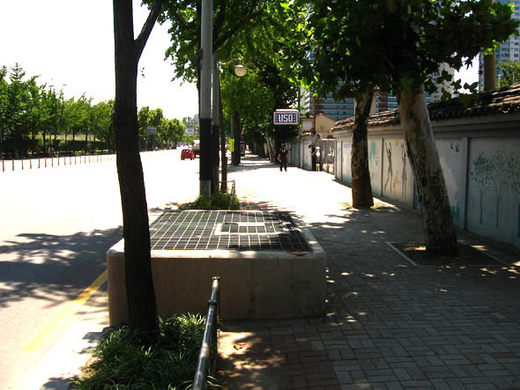Posted on : Aug.22,2006 15:45 KST
 |
|
An underground electricity-supply facility in front of Camp Kim at Yongsan Garrison, Seoul, where oil leakage was alleged to be found.
|
The U.S. military here has declined a South Korean request for a joint probe of an oil leak from a base, the Environment Ministry said Monday.
"Since we notified the U.S. military of the oil leak, it has stopped spilling. We guess that the U.S. authorities have knowledge of how it happened," a ministry official said, asking to remain anonymous.
Earlier this month, the ministry asked the U.S. Forces Korea to determine the cause of the oil leak in accordance with the status of forces agreement (SOFA) governing the rights and responsibilities of the U.S. troops stationed here after it was discovered that oil was spilling from a ditch at Camp Kim in Seoul.
"There is a possibility that oil came out with rain from other nearby U.S. bases, as Camp Kim is a small support base," the official said.
Currently, South Korea is intensifying efforts to close an aging underground pipeline the U.S. military has been using over the past three decades.
Since 1970, South Korea's oil refiners and the U.S. military have jointly used the 452-kilometer Trans-Korean Pipeline (TKP) to carry oil from the southern port city of Pohang, about 374 kilometers southeast of Seoul, to Uijeongbu on the northern outskirts of the capital.
Faced with the worsening pollution associated with the dilapidated pipeline, the South Korean government is planning to permanently close nearly 80 percent of the TKP this year.
However, 104 kilometers of the TKP in two sections -- Daegu-Waegwan and Anyang-Pyeongtaek -- will continue to be used by the American military after renovation. The U.S. will be asked to pay to establish anti-leakage systems along the remaining sections of the TKP.
The South Korean government has also decided to allow the U.S. military to use a new oil pipeline established in 2002 in return for the closure of most of the TKP.
South Korea has requested that the U.S. military cover the cost of building oil-leak monitoring systems on the remaining sections of the TKP for the sake of environmental protection, according to its officials.
The older pipeline was constructed in 1970 by the U.S. forces, but its ownership was transferred to the host nation in 1992.
Under an earlier agreement, South Korea must pay for repairing, closing and dismantling the pipeline, while the U.S. is obliged to pay for its use.
Aware of the agreement, South Korea is asking the U.S. to bear the cost of building the monitoring systems since it is the one that uses the pipeline.
The U.S. forces nationwide use about 2 million barrels of fuel annually, according to government data.
About 30,000 American troops are stationed in South Korea, a legacy of the 1950-53 Korean War, as a deterrent against North Korea. The number is scheduled to go down to 25,000 by 2008.
The two Koreas are still technically in a state of war, since the 1950-53 Korean War ended in an armistice, not a peace treaty.
Seoul, Aug. 21 (Yonhap News)

